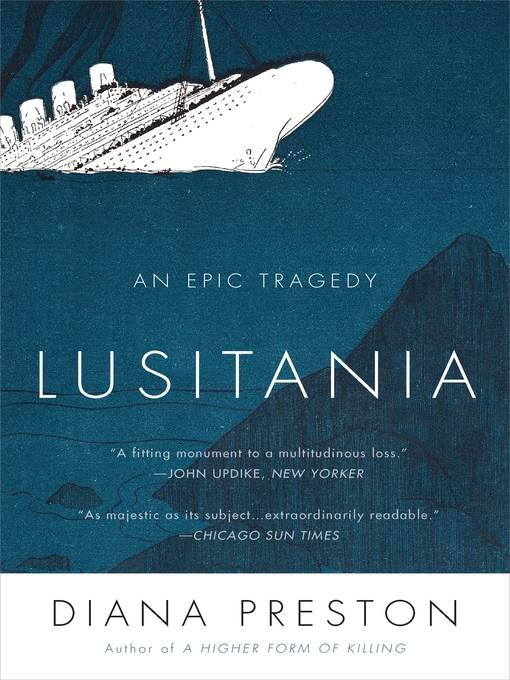
Lusitania
An Epic Tragedy
کتاب های مرتبط
- اطلاعات
- نقد و بررسی
- دیدگاه کاربران
نقد و بررسی

March 11, 2002
Following her previous title for Walker, The Boxer Rebellion, Preston, an Oxford-trained historian, writer and broadcaster, provides more thrills and chills with this tale of the May 1915 sinking of the Lusitania, one of the jewels of Cunard's fleet of ocean liners, during a crossing from New York to Liverpool. Hit by a German submarine's torpedo, it sank in 18 minutes, with 1,200 casualties. The tragedy was a major motivation for America's entering WWI against Germany, as 124 U.S. citizens were among the dead. Preston offers myriad details to recreate the look and feel of the Lusitania's last voyage. Beyond that, she judiciously marshals German accounts at the time of the sinking and since to "justify" the attack, such as the charge that the Lusitania
was carrying Canadian soldiers or contraband weapons, but she finds no evidence that soldiers were present, although a cache of weapons was carried. With a realistic view of the tangle of world politics in the WWI era, she concludes: "... no government, British, German, or American, was entirely free of blame for the situation leading up to the attack. Nor, in its wake, was any government hesitant to twist the facts, or use the disaster, to its own political ends." (May)Forecast:With human details to back up the political analysis, this fluently written item would seem a natural for history buffs. Analogies between the WTC attacks and the ill-fated ship may be drawn by some reviewers.

Starred review from April 15, 2002
In a lively narrative, Preston (A First-Rate Tragedy) examines the torpedoing of the British liner Lusitania by the German U-20 in 1915. Preston re-creates the physical conditions of ship life aboard both the Lusitania and the U-boat as well as the political and military context that led to the Lusitania's destruction, with the loss of over 1200 people. Perhaps Preston's greatest contribution to the historical record is helping to debunk some of the conspiracy theories associated with the event. For example, the British were quick to realize the propaganda potential in the tragedy and tried to suppress any significant investigation into the event for fear that they might be blamed, thus detracting from the moral outrage felt in the neutral United States. As such the Royal Navy's shortcomings, especially the confusion caused by the fog of war, were never revealed, helping fuel the notion that the Lusitania was sacrificed by the British and especially Winston Churchill to induce America into joining the Allied side. Meanwhile, Preston's reconstruction of the path of the U-20 is revealing, especially in detailing the submarine captain's willingness to attack civilian targets without clear orders. This book is effectively written, researched, and argued. Recommended for all libraries. Frederic Krome, Jacob Rader Marcus Ctr. of the American Jewish Archives, Cincinnati
Copyright 2002 Library Journal, LLC Used with permission.

























دیدگاه کاربران